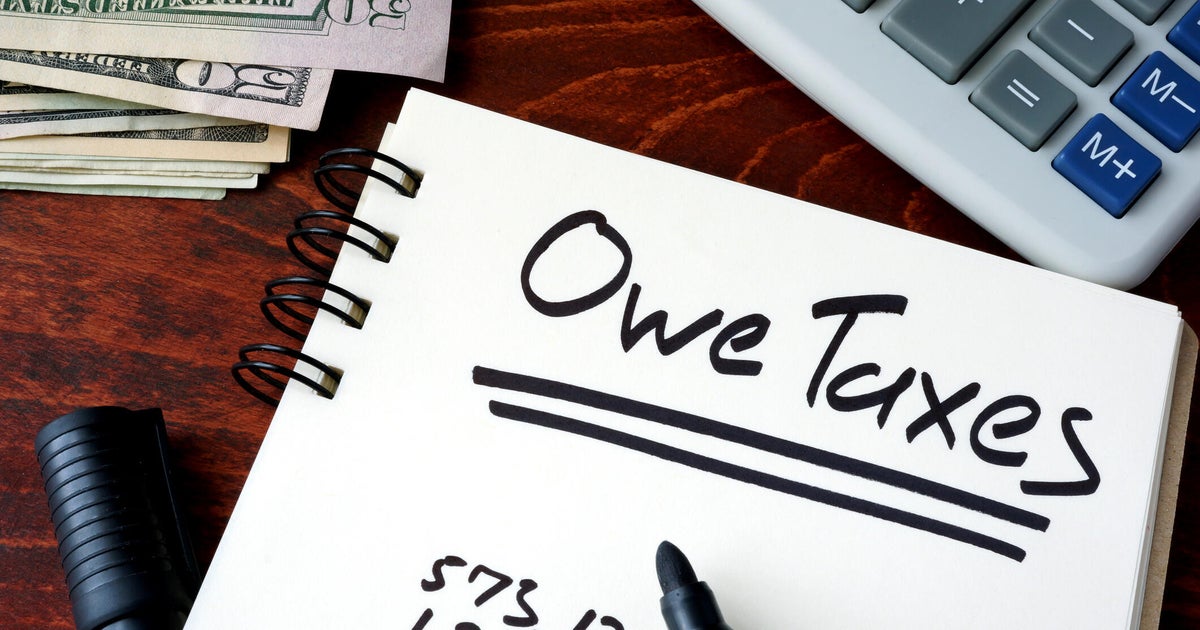The great tax refund debate: Is it financially wiser to get a big refund — or nothing?
Tax refunds represent a source of joy for millions of U.S. households, and this year, the average check is about $3,000, according to the latest IRS data. Refunds are often used to pay down bills, start an emergency fund or splurge on something special.
Of course, refund checks may be pleasant to receive, but they aren't free money from the government. Instead, they represent reimbursements from the IRS for taxes that workers overpaid throughout the year — and last year, that amounted to $360 billion in overpaid income, with 2 in 3 taxpayers receiving a check from the IRS.
Because of the financial stakes, tax professionals and armchair behavior economists have engaged in a long-running debate — and even soul-searching — about whether it's financially wiser to get a tax refund or to have as close to a "net zero" tax return and get nothing back from the IRS. The prevalence of tax refunds has also sparked economic research, with experts pointing to everything from "inertia" in tweaking one's tax withholding to a desire for financial cushion due to income volatility.
On one side of the debate, many experts caution that tax refunds represent interest-free loans taxpayers give to the federal government.
But on the flip side, other financial professionals say it may be better for some taxpayers to receive a refund because it essentially provides an enforced savings plan, which can be helpful for people who have trouble socking away money.
A question of psychology
"These are really good questions, but it's not tax law — these are psychological issues," noted Keith Hall, a CPA and the CEO of the National Association for the Self-Employed. But, he added, "It is clearly better to put $50 from every paycheck in your own savings account where you get interest and you don't have to wait to get the refund."
To be sure, attempting to change your refund for the current tax filing year, with returns due to the IRS by April 18 for the 2022 calendar year, is almost a moot point, noted Ed Slott, a CPA and a financial expert.
"It's the things you can do this year that will change for next year," he noted. For instance, if you want to ensure you aren't overpaying on your 2023 taxes, you could adjust your withholding with your employer this year.
The case for no refund
Hands down, it's a financially wiser choice to get your money in your paycheck throughout the year, according to the experts surveyed by CBS MoneyWatch.
"As of February 24, the average tax refund was $3,079 — that is a $3,000 interest-free loan you are giving to the government," noted Derek Pszenny, the president of Carolina Wealth Management. "That is about $250 a month extra that you could add to your budget."
That's similar to the monthly payments that many families with children received in 2021 through the expanded Child Tax Credit — money that was credited with reducing child poverty and helping families afford child care, transportation and more.
Aside from using the money for household expenses, taxpayers could use that extra $250 to save for retirement, Pszenny said. That's a big issue given that there's a massive retirement gap in the U.S., with most Americans having far less than they'll need for a comfortable retirement, he noted.
"If you put $200 a month into a 401(k) and average 9% for 10 years, you would have something like $38,000," he noted. "If you adjust your withholding so you have zero refund, and put that into a 401(k) for 40 years, you'd have almost $1 million."
At a more conservative return of 7% annually, the saver would still have $520,000 after 40 years.
If you need the money on a short-term basis, you could sock it away in a high-interest savings account, which can now exceed 4%. By comparison, the IRS doesn't pay interest on tax refunds, which means you could be missing out on making some extra money through a high-yield savings account or other investment vehicles.
The case for getting a refund
While financially, it may make sense to get your money with each paycheck rather than in a refund check, that doesn't reflect the reality of human behavior when it comes to money, some experts pointed out.
Getting more money with each paycheck may simply go toward funding existing needs and wants, rather than toward a 401(k) or savings account. And families that receive tax refunds tend to have lower incomes than those who owe the IRS — at about $50,000 versus $71,000, according to an analysis from JPMorgan Chase.
That suggests some households that receive refunds may be squeezed for disposable income, and thus face more financial pressures — which could cause that extra money to be swept up in current needs rather than long-term goals. Almost half of Americans said they plan to save their refund checks, according to a 2022 study from LendingTree.
"If I try my best to put away $50 a paycheck, but I can't do it because I'll take the money out and do something else, then the only way I can do it is to overpay and get a refund on April 15," Hall noted. In that case, he said, "it makes sense" to get a refund.
Sometimes it's impossible to determine whether you'll get a tax refund, however. For instance, the Earned Income Tax Credit and some other federal tax credits, which can only be taken annually on your tax return, can boost one's tax refund — regardless of whether a taxpayer has correctly withheld throughout the year.
There's also a less concrete but potent reason to get a tax refund: the emotional impact of a refund check sliding into your banking account.
"When I sat with people and they got a big refund, they left happy — and I liked that," Slott noted. He added wryly, "For a financial person, I am giving you the wrong answer."





